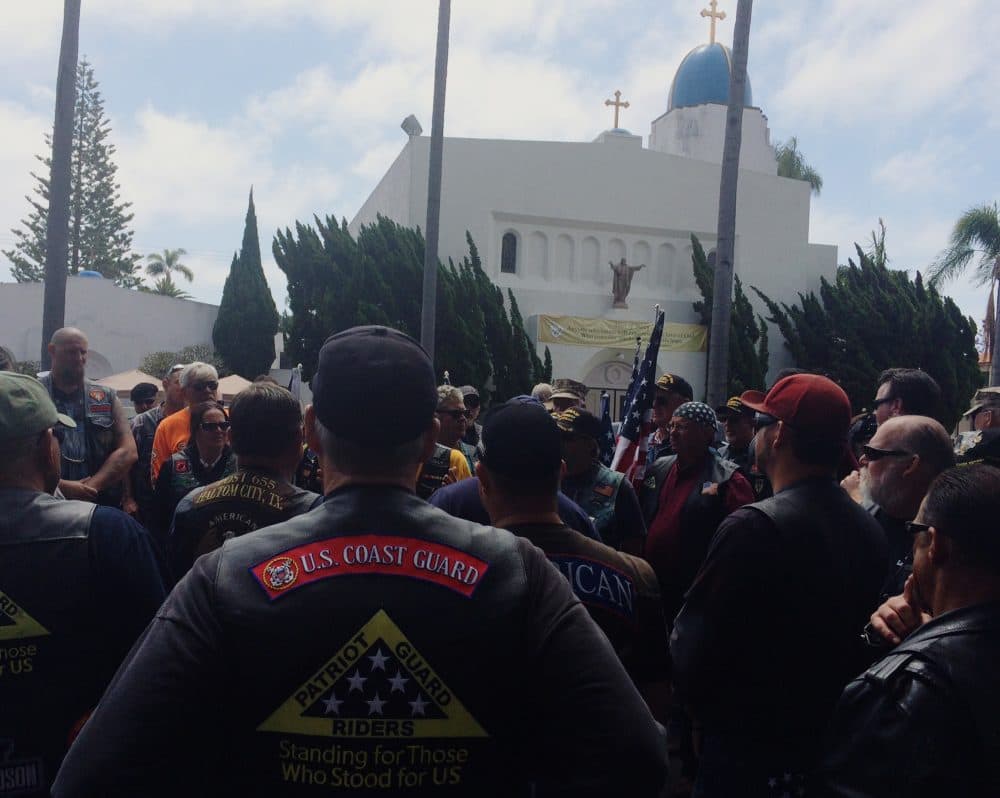Advertisement
Afghanistan Veteran: We Need Massive Protests If Trump Escalates Military Action

COMMENTARY
I was just a couple of weeks into my freshman year in high school when planes piloted by al-Qaida hijackers slammed into the Twin Towers and the Pentagon. At 14, I lacked the worldliness to fully wrap my head around the events of Sept. 11, 2001, but even I sensed that a seismic shift in the direction of our country had occurred. Over a decade later, I would be on the ground in Afghanistan, fighting in the war that began on that day.
In 2017 our military adventure in Central Asia will enter its 16th year. Thousands of American service members remain deployed in the country, stuck in a stalemate that shows no sign of abating.
In his inaugural address, President Trump stuck to the same, imprecise, bellicose tone, promising to wipe the Islamic State “from the face of the Earth.”
The Afghan war is remarkable in American history not only for its length but also for the unprecedented lack of public and congressional debate over its merits. The conflict has spanned two, two-term administrations of presidents from both parties and has cost nearly $5 trillion in taxpayer dollars and thousands of young American lives. Despite the conflict’s longevity and centrality to U.S. foreign policy this century, the war was barely discussed by either major candidate in the most acrimonious presidential election in living memory.
In his first week as president, Donald Trump managed to perpetrate a litany of apostasies against the vision of the United States to which most liberals and progressives subscribe. The president’s order to the Pentagon Saturday to devise a plan to defeat ISIS in the next 30 days was obscured by this laundry list of outrages.
Claiming that he did not want to “telegraph exact military plans to the enemy,” candidate Trump’s platform for addressing ISIS was strikingly short on details. Judging from crude soundbites on the campaign trail and dumbfoundingly hyperbolic critiques of President Obama’s approach to the organization, one could reasonably assume he planned on pursuing an aggressive strategy.
In his inaugural address, President Trump stuck to the same, imprecise, bellicose tone, promising to wipe the Islamic State “from the face of the Earth.” The guarantee was delivered in the way a politician might promise a tax cut or education reform, as though it were merely a matter of process and political will, and not an excruciatingly complicated geopolitical issue in a part of the world already strewn with failed U.S. interventions.
President Trump is hardly the first commander-in-chief to oversimplify nuanced foreign policy issues. Given his apparent immunity to facts, however, I fear that our current chief executive may be uniquely unwilling to apply the lessons of recent history to any decision on use of force.
President Trump has inherited an executive branch with the authority to effectively dictate policy regarding national security issues. This power comes courtesy of the second Bush and Obama administrations and the feckless Congresses that failed to insist on the legislative branch’s coequality in these realms. To borrow a phrase from Boston University Professor Emeritus Andrew Bacevich, the “imperial presidency” seems to have found its emperor.
Thanks to the expansive interpretation of the post-9/11 Authorization for Use of Military Force, vigorously defended by the Obama administration’s lawyers — which essentially allows the president to decree which global threats it can be applied to — President Trump will have a blank check to implement whatever action he sees fit.
There is no reason to believe the military will not carry out its charge of devising a plan to satisfy the president’s ambitious promise to the American people. Many national security experts see no path to dislodging ISIS outside of full-scale war. This would constitute a return of American soldiers, sailors, airmen and Marines to the disastrous fighting in the Levant our country extricated itself from less than a decade ago.
That President Trump would make a promise with such implications in his inaugural address and have it go unaddressed by elected officials is truly astonishing. His rhetoric suggests a complete disregard for the consequences of achieving this end, all for a threat that could never reasonably be described as existential to the United States.
What we have seen from our thin-skinned commander-in-chief is an obsession with his public image. I don't think it's alarmist to suggest that President Trump is above expanding a war in the Middle East in order to wrap himself in the flag and label his detractors as unpatriotic weaklings who hate the troops.
Given the indifference of Congress to 15 years of war in Afghanistan and the sheer number of distractions sure to arise throughout the Trump administration, I have no confidence that our legislators will act on their own to prevent yet another catastrophic military adventure in the Middle East.
Many national security experts see no path to dislodging ISIS outside of full-scale war.
What it will take to hold our elected officials accountable is large-scale, grassroots opposition to further military over-extension and an escalation that would satisfy only a vocal, hawkish minority in the president’s base.
As an opponent of virtually all of the president’s policies, I have been heartened by the extensive backlash from the general public on issues such as the border wall and immigration restrictions. I fervently hope that the same passion that has animated people on behalf of the groups impacted by these policies will be mobilized on behalf of our military men and women and their families who will be the ones to bear the burden of our president’s reckless inaugural promise.
Will crowds of people take to the streets if the president orders service members to die for his vanity project? I hope so. The question remains, however, where have these crowds been for the last 15 years?
